Links emphasised for arbitration relations
On May 8, the Vietnam International Arbitration Centre (VIAC) signed agreements with 19 industry and locality associations in which it will provide legal support and participate in resolving disputes for association members. Besides that, the VIAC will collaborate with other associations in reviewing and offering opinions on laws and policies related to their activities.
 |
| Links emphasised for arbitration relations/ illustration photo/ Source: freepik.com |
The agreement involves the Vietnam Textile and Apparel Association, Vietnam Association of Seafood Exporters and Producers, Vietnam Young Entrepreneurs Association, the Vietnam Leather, Footwear and Handbag Association, and the Beer Alcohol Beverage Association Vietnam, among others.
According to Phung Anh Tuan, executive vice chairman and secretary general at the Vietnam Association of Financial Investors (VAFI), many investors reflect that Vietnam is focusing on attracting new foreign investment capital inflows while maintaining and taking care of existing investors.
“Local authorities have yet to pay attention to implementing investment protection mechanisms effectively, which is one of the leading factors that impacts investment expansion decisions. When foreign investors have a dispute with local management authorities in Vietnam, we do not see the appearance or role of international arbitration in dealing with these problems,” Tuan said.
VAFI has plans, therefore, to foster the collaboration with the VIAC to implement the conciliation segment relating to the investment protection, which Tuan said is an extremely vital segment to retain the investors to expand their operations in this country.
In terms of the importance of the international arbitration centres, according to the Vietnam Textile and Apparel Association (VITAS), one weaving and dyeing joint venture with a US firm is a prime example. The local party and the US firm had a dispute after seven years of operating at a loss. The two parties sought for conciliation in Vietnam but failed to come to a conclusion.
However, in the contract to establish the joint venture, it was stated that if the two parties could not reach a compromise after international arbitration in Vietnam, they have to work with such a centre in Singapore. As a result, the Vietnamese party won the dispute.
“This type of situation raises the importance of the links between manufacturers, exporters, and arbitration centres to support legal issues in order to avoid unexpected risks and resolve disputes effectively,” said VITAS chairman Vu Duc Giang.
The four prevalent methods of business dispute resolution in Vietnam include negotiation, mediation, arbitration, and court. According to the Ministry of Justice, negotiation and court are the most selected practices to resolve business conflict with 57.8 and 46.8 per cent respectively, followed by mediation (22.8 per cent) and arbitration (16.9 per cent).
According to Truong Lang, a representative of consultants Viettonkin, commercial dispute resolution by the court is the most popular, however, this method has several downsides. One of the principles in court adjudication is a public hearing, which is of the most concern to businesses as their trade secrets will be exposed.
“In addition, court procedures are complicated and cumbersome, and the division of trial procedures is time-consuming and ineffective, prolonging the time for dispute settlement. This leads to economic losses for businesses in commercial conflicts,” Lang said.
Giang of VITAS emphasised that commercial arbitrators play an important role to assist businesses in preventing legal risks. Accordingly, the VIAC needs to promote support and participate with businesses from the moment the businesses sign contracts with a partner, to the payment stage.
“To help the business community to understand the advantage of arbitration and conciliation, it is necessary to increase the communication channels. The VIAC needs to build solutions to prevent risk in international payments,” Giang said.
“A leading risk is the payment method. In difficult situations, foreign partners cause pressure in terms of equally negotiating with local partners, even if they require a change from a letter of credit method to telegraphic transfer. With the latter, the partner can pay later up to 90 days after receiving goods, causing risk for exporters and manufacturers,” Giang added.
Along with the risk in payment method, members of VITAS report that in new markets, when they see a breakthrough increase in orders from Vietnam, they will immediately build technical barriers. Many EU partners offer strict requirements and cut the orders if manufacturers cannot meet their requirements.
For example, although the export turnover of Vietnam to India is not substantial, the price of fibre is lower than in India; thus, they raised technical barriers for products from Vietnam. These requirements, which Giang said are unreasonable, prevent exports by manufacturers here.
| Vu Tien Loc - President, VIAC
Disputes in investment activities have many mechanisms for resolving conflicts, such as courts, commercial arbitration, and foreign intervention. In many countries around the world, businesses always try to negotiate with each other before taking the dispute to court. They often choose arbitration or conciliation instead of the court, but in Vietnam, businesses often prefer court. Selecting arbitration and conciliation will ensure convenience and a reasonable cost, and simultaneously respect the parties’ right to self-determination. Arbitration is also private and the results are often kept secret, which will not impact their business operations. Another important thing is that if the conciliation is successful, the two parties still have opportunities to continue to cooperate with each other. The majority of enterprises shared with us that they will choose to use commercial arbitration in cases of dispute, rather than going to court. |
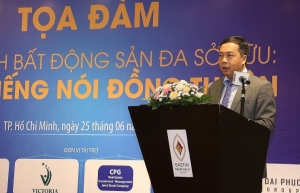 | VIR hosts seminar solving disputes in high-rise apartment buildings Solutions of disputes between developers and residents in high-rise apartment buildings are discussed in a seminar held today in Ho Chi Minh City. |
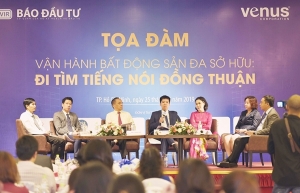 | Common grounds in urban disputes The real estate market is booming with a series of new buildings and urban areas popping up across the country. After some high-profile spats between developers and residents, the challenge of maintaining a cultured environment where residents are fully satisfied with their investment choice remains. Bich Ngoc reports. |
 | Disputes ignite over Vietnamese country-code top level domain name Despite their importance to business, Vietnamese domain names, or country code top-level domain (ccTLD), have received little attention from foreign companies, causing legitimate concerns over reputation and brand awareness. The case of OSRAM is a prime example of this. |
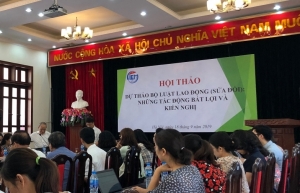 | Disputes around the draft Labour Code Cutting standard working hours and offering progressive payment for overtime without changing the ceiling of overtime hours would run up costs for businesses, impacting their performance. |
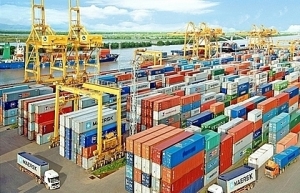 | ASEAN trade mechanism needed to support firms overcome disputes A mechanism indicating fair, transparent and objective rules for ASEAN economies and their enterprises is needed to resolve trade issues when products are exported between markets. |
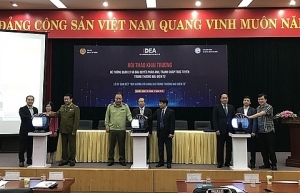 | MoIT launches sites to deal with e-commerce disputes, counterfeit goods Counterfeit goods have always been a major concern in Vietnam. Whether it's fashion items, electronic equipment, or even medicine, the problem of authenticity is often an issue. |
What the stars mean:
★ Poor ★ ★ Promising ★★★ Good ★★★★ Very good ★★★★★ Exceptional
Related Contents
Latest News
More News
- Masan Consumer names new deputy CEO to drive foods and beverages growth (February 23, 2026 | 20:52)
- Myriad risks ahead, but ones Vietnam can confront (February 20, 2026 | 15:02)
- Vietnam making the leap into AI and semiconductors (February 20, 2026 | 09:37)
- Funding must be activated for semiconductor success (February 20, 2026 | 09:20)
- Resilience as new benchmark for smarter infrastructure (February 19, 2026 | 20:35)
- A golden time to shine within ASEAN (February 19, 2026 | 20:22)
- Vietnam’s pivotal year for advancing sustainability (February 19, 2026 | 08:44)
- Strengthening the core role of industry and trade (February 19, 2026 | 08:35)
- Future orientations for healthcare improvements (February 19, 2026 | 08:29)
- Infrastructure orientations suitable for a new chapter (February 19, 2026 | 08:15)


 Tag:
Tag:



















 Mobile Version
Mobile Version